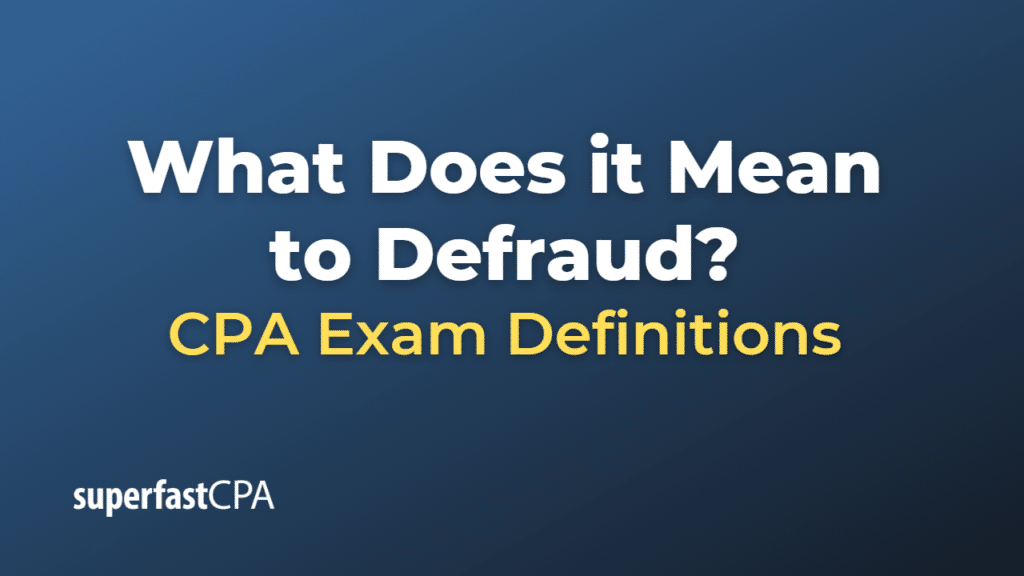Defraud
To defraud means to intentionally deceive someone, usually for personal gain or to cause loss to another party. This deception is often done through misrepresentation, false information, or other dishonest means. Defrauding can occur in many contexts, such as in business transactions, consumer deals, or in interactions with government agencies.
Defrauding is illegal and can result in severe penalties, including fines and imprisonment. The exact penalties can vary depending on the jurisdiction and the specifics of the fraud committed.
Common types of fraud include:
- Identity Theft: When someone uses another person’s personal information, like their Social Security number or credit card details, without permission, to commit fraud or other crimes.
- Insurance Fraud: This could be when an insured individual fakes or exaggerates a claim, or when an insurer denies a claim that’s legitimate.
- Securities Fraud: This involves deceptive practices in the stock or commodities markets, such as insider trading or false information on a company’s financial statement.
- Credit Card Fraud: This includes unauthorized use of a person’s credit card information to make purchases, or opening a new credit account using someone else’s personal information.
- Internet Fraud: This includes a wide variety of schemes conducted via the internet, including phishing scams, online auction fraud, or Ponzi schemes.
- Tax Fraud: This includes intentional wrongdoing on a tax return by providing false information about income, deductions, or credits.
Remember, the above examples are illegal activities and are considered highly unethical. They can cause significant harm to individuals and institutions, and they undermine trust in financial systems and transactions.
Example of Defraud
Imagine a scenario where a person named Alex runs a Ponzi scheme, a type of investment fraud. Alex promises investors high returns with little risk. He attracts a substantial number of investors who are excited by the potential of earning significant profits.
Initially, Alex pays the promised returns to older investors through funds contributed by newer investors. No real investment is actually taking place. Instead, investor money is simply being shuffled around to create the illusion of legitimate returns. This process encourages more people to invest in the scheme, as they hear about the high returns that the initial investors are receiving.
However, such a scheme is not sustainable. When Alex is no longer able to attract new investors, he can’t continue to pay the promised returns to the existing investors. The scheme collapses, and the investors lose the money they invested.
In this case, Alex has defrauded the investors by misrepresenting where their money was going and by promising high returns that were not based on legitimate investments. This is a criminal act, and Alex could face significant penalties, including fines and imprisonment.













